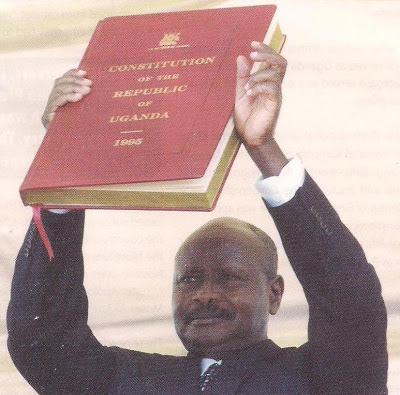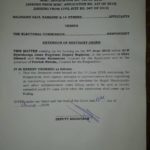By Taryn Weninger & Dr. Fred Sekindi
Uganda last held Local Council elections in 2001. The Government’s plan to conduct the election towards the end of 2017, was interrupted by a High Court challenge, in which among others, the petitioner alleged that if the elections were to be conducted at the time, they would impede on class time, and thereby exclude students to partake in the election.
The High Court has now authorised the Electoral Commission to start the local council election process. The elections are to be conducted under the Local Governments Amendment Act, 2015. However, the manner in which the elections are to be conducted remains contentious.
A constitutional petition brought forth by the Foundation for Human Rights Initiative and Legal Aid Service Providers Network Uganda alleges that subsections 12 (a) and (b) of the Local Governments Amendment Act, which amends Section 111 of the Local Government Acts, allowing local government elections to be conducted other than by secret ballot, violates the right to free elections guaranteed by Article 1(4) of the Constitution.
Subsection 12 (a) and (b) of the Local Government Amendment Act states: ‘Election of village, parish and county council chairperson and other officials shall be by the electorate lining behind the candidates nominated for the office or his or her representative or portrait’.
This makes subsections 12 (a) and (b) of the Local Government Act inconsistent with Articles 1 (4), 21, 33, 35, 45, 59 (1) (3) and (4), 68 (1) and 79 (1) of the Constitution of the Republic of Uganda.
The Constitution requires the Electoral Commission to ensure that elections are both free and fair, as well as ensure that election complaints are heard and determined both pre-polling and during polling. Along with questionable legality, the use of the line-up method has also fostered immense criticism from citizens across Uganda. In maintaining and utilising the right to vote under Article 59 of the Constitution, this provides that free and fair elections are one of the fundamental principles of democracy and the rule of law, with the secrecy of voting being a key aspect.
Article 68 (1) of the 1995 Constitution sets a standard of voting by means of a secret ballot using a ballot box. Conversely, subsections 12 (a) and (b) sets a lower standard of an election which is not justifiable in a democratic society. The key provision mandating how people shall be allowed to choose their leaders is found in Article 1 (4) which attests that elections must be regular, free, and fair. In addition, Article 68 (1) further augments the concept of both free and fair elections by urging that elections should solely be conducted by means of secret ballot. These sections are further supported by provision Article 61 (1) (a), which mandates the Electoral Commission to conduct free and fair elections.
The issue at stake is whether an elected leader can be considered a sovereign leader if the election is neither free nor fair. For an election to be free, a voter must be guaranteed the right to vote without any undue influence or fear. The manner in which the elections are to be conducted, which requires people to openly line up behind their preferred candidate, leaves the voter vulnerable and exposed to extensive social scrutiny and political pressures which can ultimately sway a voter to choose differently in the apprehension of negative repercussions. It also violates the principle of a secret ballot as it erodes confidentiality. For an election to be free and fair, a secret ballot should be implemented.
Conducting elections by secret ballot ensures that the voter’s choice in an election remains private and the voter remains anonymous. The secret ballot method also prevents voters from being subjected to undue influence or intimidation and is aimed at achieving political privacy. It, therefore, ensures the credibility of the elections and preserves the integrity of the electoral process.
FHRI calls upon the Judiciary to issue an interim order suspending the election until the constitutional petition has been disposed of.








